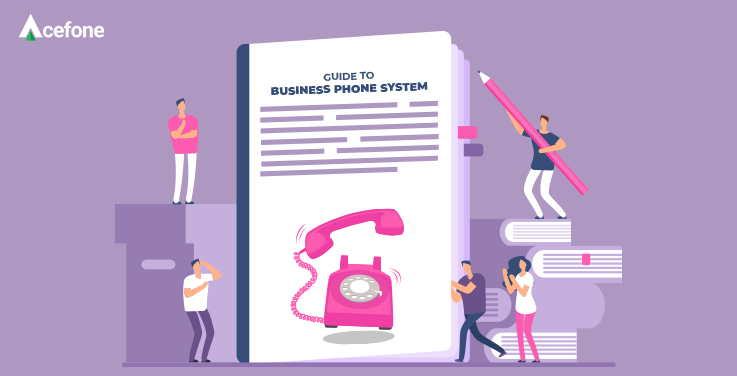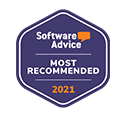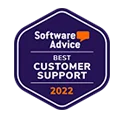Most businesses are adopting a phone system in their organisation. But unlike many who think they know what a business phone system, there is so much more to it!
In this blog, we will cover all the different aspects of a business phone system, and provide a complete guide about it so the next time someone asks you about a business phone system or a PBX, you not only know what it is but understand it completely.
In this article, we will cover the following:
- What is a Business Phone System?
- Different Types Of Business Phone Systems
-Multi-line Phone System
-PBX Phone System
-VoIP Phone System - Why Do You Need a Business Telephone System?
- What Business Phone System Should You Choose?
-What Should You Opt For? On-premise or Cloud-hosted? - What Features Do You Want In Your Phone System?
- How Do You Select Your Provider?
- How Much Is The Business Phone System Going To Cost
Let’s get started with one of the most basic questions –
What Is A Business Phone System?
To put in simple words, a business phone system is a multi-line telephone system which is generally used in businesses. These multiple telephones are interconnected in such a way that allows the users to enjoy a variety of features such as call conferencing, call transferring, call handling, call metering, call monitoring, etc.
The size of a business phone system can range from as small as just a few telephones to a full-fledged private branch exchange or PBX system which is commonly used in large organisations.
The most famous and most commonly known business phone system is the traditional phone system. Traditional phone system generally has a single telephone line with one or maybe two handsets.
But then, that doesn’t really answer the question of what is a business phone system? While traditional phone systems are used in many businesses as their phone system, to make them suitable and fall under the category of business phone system, there are a few additional elements that are needed. These elements are-
– Extra or additional phone lines, as one telephone line is definitely not enough for business
– Basic software
– An internet connection or IP
– A Private Branch Exchange or PBX
– An advanced software, if required, for additional features
Business phone systems are of different types. In fact, we will need another section to cover that. So why wait? Let’s get straight into it.
Different Types Of Business Phone Systems
A single type of business phone system is not enough to fit the needs of all types of organisations. There are mainly three types of phone systems used in businesses to fulfil their needs.
Multi-line Telephone System
A multi-line telephone system is an upgrade to the traditional phone system. As the name suggests, this type of phone system has multiple phone lines which help to route different query calls to different departments in your organisation.
As every department can be dedicated to their own unique phone line, there is no hassle or interruptions for routing calls.
If needed, you can even customise it, so every incoming call to the business has through go through a single handset. Where a dedicated agent will pick up the call and then manually redirect it to the suitable department. As each department can be assigned a different extension, even this process will be smooth.
Multi-line Telephone System in a Nutshell
- Has multiple telephone lines
- Has multiple handsets
- Provides basic call handling features
- Allows separate extensions for different departments
- Is suitable for very small and small businesses
- Falls in the low- to mid-price point
PBX Telephone System
A PBX Telephone System, also called Private Branch Exchange, is very similar to a Multi-line Phone System. While in multi-line phone system, call handling was manually looked upon, in a PBX system it is automatic. Let me explain this in simpler words.
Let’s say a caller is connected to your business. In a Multi-line phone system, he will first connect to the center handset, where an agent will greet him or her. Then the agent will ask the query, and after the customer answer, the agent will redirect the call to the suitable department.
Now for a PBX telephone system, when the customer calls, they will be greeted by an automated voice. Then they will be provided with a list of options of the extensions of different departments. The customer can select whichever department they see fit to solve their query.
This completely eliminates the need of an additional agent to route calls to different departments, and this also offers a for customers, and they don’t have to repeat their query again and again to different agents. You can even connect a PBX system to the internet to avail basic software integrations for your phone system. This will enable you to get insights on a lot of things. You can check the call length, call volume, and even how often does a customer calls your business.
PBX Telephone System in a Nutshell
- Has multiple telephone lines
- Has multiple handsets
- Has PBX hardware
- Allows basic software integrations after connecting to the internet
- Provides automated call handling and eliminates an additional agent to route calls
- Is suitable for small business
- Fall in the mid- to high-price point
VoIP Telephone System
VoIP or Voice over Internet Protocol is the most advanced business phone system out of the three. It is sometimes also called IP PBX. Like in the name, VoIP uses internet to send and receive phone calls. The voice signals are converted into packets and then transmitted through the internet. After reaching the destinations, the packs are converted back to voice messages.
VoIP phone system can be on-premise if you set-up the right hardware in your organisation.
However, if you don’t want to have the hassle of hardware, you can even access the VoIP phone system remotely as it can be hosted on the cloud. Because of this, it is often referred to as Hosted Phone System or Cloud-based Phone System.
Although, the thing that you should keep in mind is that there is a significant difference in the price of setting up an on-premise VoIP telephone system as compared to a cloud-based VoIP telephone system.
The reason being that cloud-based phone systems require less to almost no hardware installations, and as there is no hardware, there is no cost involved in maintaining the hardware either. Moreover, because of being cloud-based, it offers higher security and data backup option compared to the traditional multi-line and PBX phone systems.
Businesses are shifting more to VoIP phone systems from old traditional phone systems as they offer more advanced features to the users. In addition to what the PBX offers, VoIP is loaded with features like call recording, call whisper, call barging, real-time analysis, etc. It can even be integrated with CRM software to more advantage.
Also, as traditional ISDN phone is coming to an end in 2025, VoIP is going to take over the business phone system industry and will dominate it as every business will most likely switch to VoIP by 2025.
VoIP Telephone System in a Nutshell
- Has multiple lines
- Has multiple handsets
- Option to choose from cloud-hosted phone system or on-premise phone system
- Offers advanced software integration
- Provides advanced call handling features
- Is up to date with technology
- Can be integrated with a CRM software
- Provides higher security and data backup
- Suitable for all kinds of businesses, be it small, mid-size or large enterprises
- Has different pricing options depending on the needs of a business so, it is very cost-efficient.
Why Do You Need A Business Telephone System?
It doesn’t matter if you have a small-scale business or a large enterprise; it is always beneficial to have a business phone system rather than a traditional telephone system. Each business telephone system offers multiple reasons why to choose them.
Helps in Building Healthy Relation with the Customer
It is essential to have a positive and healthy relationship with your customers to build a better reputation for your organisation. Each business phone system helps to build that healthy customer relation for your business.
Multiline Telephone System
- Allows the users to call straight to the required department, provided they know the right line.
PBX Telephone System
- Automatically redirects the customers to a suitable department.
- Offers basic software integration, which helps manage the customers better.
- Provides basic call forwarding, which makes sure that no customer call is lost.
VoIP Telephone System
- Automatically redirects the customer to the most suitable department without any hassle or human interaction.
- Provides an intelligent call forwarding feature, which ensures that no customer is ever lost as every call will be forwarded to any device of preference.
- Offers CRM integration to ease the use and management.
- Intelligent software integrations with multiple software to provide the best customer experience.
- Has the option to select the music on hold for the customers to keep them patient.
- Allows multiple voicemail features, so even if a call is missed due to any reason, the customer can still leave a message and, it will reach the business.
Provides Increased Mobility to the Employees
Why should the phone systems be static when the businesses are not anymore? Employees can be on the move or stay inside the office like they are, and business phone systems are designed to cooperate with that.
Multi-line Telephone System
- Can make calls internally and externally at the same time.
PBX Telephone System
- Can also make both internal and external calls at the same time.
- Is able to redirect calls to mobile phone.
VoIP Telephone System
- It is also able to make calls internally and externally at the same time.
- Able to redirect calls to any device of preference.
- Can use the same number for multiple devices in multiple locations.
- It can also collect customer call data to help boost the sales and marketing strategy of the business.
- With a cloud-based or hosted phone system, any business can easily relocate, and the phone system will be ready to use in minutes.
- All the features are accessible to the agent from any part of the world as long as he has an internet connection.
Better Communication with Employees Internally
While focusing on external communication with the clients, it is important not to ignore effective internal communication within the employees to make sure everything is streamlined in the organisation.
Multi-Line Telephone System
- Able to dial calls internally.
- Can transfer calls internally.
PBX Telephone System
- In addition to internal calling, external calling is also possible.
- Can also transfer calls internally.
- Hold conference calls with all other offices.
VoIP Telephone System
- Can efficiently dial calls internally as well.
- Easily transfers calls internally.
- Voice, as well as video conferencing, is possible across other offices around the globe.
- With software integration, even instant messaging is possible internally.
Increase the Productivity of the Business
As business phone systems automate a lot of processes, and they also provide efficient data, they increase the productivity of any business, be it big or small.
Multi-line Telephone System
- Provides each department with a different phone number. This ensures less time being spent on redirecting calls.
PBX Telephone System
- Automatically redirects call to the suitable department.
- Collect basic call data which helps in making business strategies.
- Forward calls to mobile phones, so none of the important calls are missed.
VoIP Telephone System
- Provides virtual assistance to the customers and redirects them efficiently to the right department.
- Offers Intelligent API that enables automated call answering.
- Provides detailed data insight on each call which helps to recognise the best performing employees and the least performing employees.
- With detailed data on each call, business voip solution can make better strategies to improve the ROI.
- Can monitor data trends to make sure businesses capitalises on the time spent with the customer.
- Can forward calls to any device anywhere around the world.
What Business Phone System Should You Choose?
As a business owner, you will only want the best for your business. But every business has different needs, and that’s why there are a few things that you must consider before
selecting the right telephone system for your business.
What is the future of your business? Is it Going to Grow?
A multi-line telephone system has limited scope for growth. Similarly, its call management capabilities are also limited. Though it is the cheapest of all the phone systems, it is definitely not made for the long run.
A PBX telephone system, on the other hand, is a little expensive to install. However, it has much more call management features compared to multi-line phone system. It is also decently capable of expansion, which again is costly because you will require more hardware. Moreover, it can also be connected to the internet for a few extra features.
A VoIP telephone system is without a doubt on top of both in terms of features and call management. And with the flexibility in its plans, it can be small or big. VoIP phone systems offer you the most scalability.
What Should You Opt For? On-premise or Cloud-hosted?
Both Multi-line and PBX telephone systems are on-premise. VoIP can be either on-premise or cloud-based, depending on your choice. So, let’s talk about on-premise first.
On-premise telephone systems require hardware, sometimes heavy equipment, depending on the size of your business. And that hardware will also require maintenance.
While it is relatively easy to expand a multi-line telephone system because of its simplicity, but it has a certain limit to its expansion.
The more complex ones are the PBX telephone system and the VoIP telephone system. They will require a knowledgeable technical expert to properly maintain, update, or expand. Now the tech expert or “IT Guy” can be in-house or contracted, but in both cases, it is going to increase the cost of maintaining an on-premise phone system.
Now coming to the cloud-hosted phone systems. Cloud-based VoIP is currently the only type of hosted telephony available. And the maintenance is negligible. There is no hardware required, and of the maintenance is done by the provider, and too remotely. This makes hosted phone system much more cost-effective than an on-premise phone system.
What Features Do You Want In Your Phone System?
This one completely depends on your business needs. Give a thought on why you are upgrading your business phone system. Do you want more channels of communication, more extensions for more departments, better customer management, etc.?
If all you want is a few more lines, then you should go for a multi-line system. It’s simple and should be sufficient for a small business which needs only a few lines.
If you want more lines, and maybe some basic call management features, and would also like a little insight on the call data, you should opt a PBX system. PBX phone system will get you the basic features and should work great for you.
However, if you are looking for advanced features, detailed analysis on each call, basically everything above, plus a little more, don’t hesitate and consider getting a VoIP telephone system for your business.
How Do You Select Your Provider?
This is going to be the last step before you get your business phone system. The best thing to do here is doing thorough research. Check multiple providers. Compare them, compare their prices.
Check their reviews and their customer support. You need to make sure everything is perfect and good to go before you make a final decision on your provider.
One thing that many people ignore is the contract. Always make sure that you have read and understood the agreement, and then move forward with it. This is because you don’t want to sign a long-term contract if you want to upgrade to something new or different in a short amount of time.
How Much Is The Business Phone System Going To Cost?
This is a question that cannot be answered directly. There are a lot of factors that affect the cost of your business phone system.
- The installation cost for your location. Is it big? Is it small?
- Cost of hardware, PBX system, the length of cables used, how many routers are needed?
- How many handsets do you require?
- How many lines are needed for your business?
- How much the maintenance cost is going to be, provided you don’t have an in-house tech expert, and you want to take the maintenance in your hand?
It is hard to take an estimate of pricing for any size of business, as every business has its own unique needs. Although business phone systems are designed to fulfil those unique needs, to get a cost estimated, the best way is to contact a provider and ask for quotes directly.
You can contact the sales team of the provider, and they will be able to provide you with an estimate.
If you are looking for a Business Phone System in the United Kingdom, Acefone provides Hosted Phone System with loads of features with the most competitive pricing. Contact a Solutions Consultant at 1888-859-0450
Ratnam is an SEO enthusiast and content writer working as a Digital Marketer with Acefone. He is fond of traveling and new experiences. He is a huge Marvel fan and is always open to learning.














